Guide to Blockchain in 2024: What is it, Benefits & Development
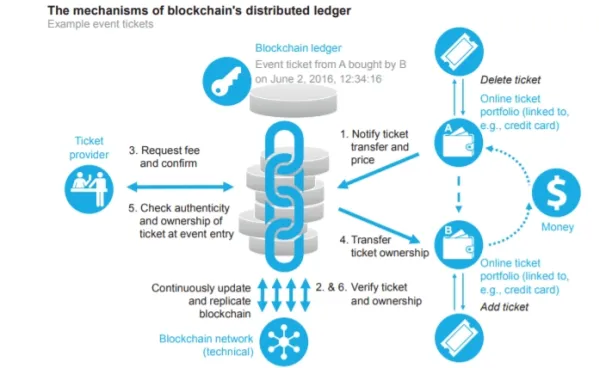
Blockchain is changing the way we transact. It enables more secure transactions, automated dispute resolution, and cost reductions through the use of cloud-based technologies.
Consequently, blockchain is a hot topic worth exploring in depth. This article introduces blockchain, discusses its impact on business practices, explores its challenges, and how to develop blockchain.
What is blockchain?
All the activities we perform online generate a huge amount of data. Blockchain is a special database system that records transaction data in real time while addressing concerns about security, privacy, and control.
The blockchain is made up of blocks. Each block stores specific transaction information such as date, price, participants in the transaction, etc. and has a specific storage code that distinguishes it from other blocks. When transaction information is recorded in a block, it is linked to the older blocks and verified by the existing elements of the chain, creating an extensible data storage area called blockchain.
Since the existing blocks verify the new blocks, the blockchain provides a secure foundation for the recorded data. The only way to change the recorded data is for someone to own more than 50% of the network’s computing power.
Due to the popularity of blockchain, there is some confusion about the concept. The following figure answers the frequently asked questions about blockchain.
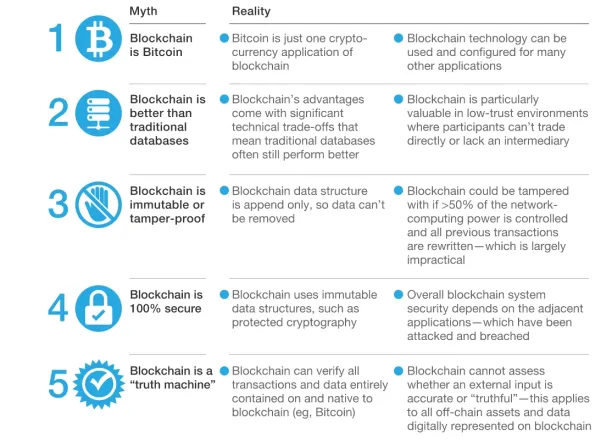
Why is blockchain important for businesses?
McKinsey argues that blockchain technology helps businesses reduce costs, ensure customer satisfaction through fast, free of commission and 7/24 transactions, and easily detect and prevent fraud thanks to crypto ledgers and smart contracts. We can divide the benefits of blockchain for businesses into three categories:
- Cost reduction: Eliminating intermediaries or the administrative burden of recording and reconciling transactions can reduce the cost of existing processes.
- Greater customer satisfaction: Customers are looking for digital solutions that allow them to buy what they want, when they want. Thanks to blockchain technology, it is possible to make purchases 7/24 without fees. Customers can insure their cars without having to physically contact a broker, or merchants can make international financial transfers without authentication by a bank or government organization.
- Fraud Prevention: In order to forge the information contained in the blocks, someone must have more than 50% of the computing power, making it nearly impossible for someone to commit fraud. In addition, smart contracts enforced by code automate the agreed processes and reduce the likelihood of fraud. Overall, blockchain technology helps businesses to fight fraud.
Which industries can benefit from blockchain?
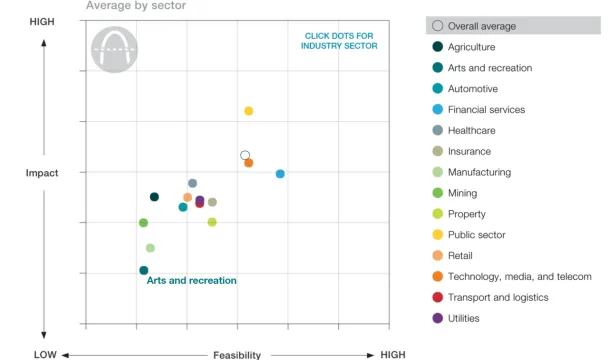
As the diagram above shows, blockchain is improving operations in many sectors such as:
- Public sector/Voting: In theory, blockchain voting would allow people to submit votes with a low risk of fraud. Also, blockchain automates the vote counting and eliminates the need for paper ballots.
- Financial services: In addition to cryptocurrencies such as bitcoin, the traditional banking sector also uses blockchain technology. Sending fiat currencies using blockchain is faster because the verification process is easier.
- Insurance sector: Blockchain in insurance improves the underwriting and risk assessment process by enabling the flow of sensitive data based on anonymity. It speeds up claims processing thanks to smart contracts and reduces the cost of fraud.
What are the different types of blockchain?
Public networks
Public networks provide a transparent flow of information. They are highly anonymous and open to everyone. They are decentralized forms of the blockchain, where everyone can access and approve transactions. Bitcoin is the perfect example of public networks.
Private Networks
These are a centralized version of blockchain, where only authorized people can see and approve transactions. The network administrator has an important function in private networks, as it allows people to join the network. The main advantage of private networks is that they are less transparent, which can be beneficial for securing sensitive information. In addition, transactions are faster in private networks because they only need to be validated by a few selected accounts.
Permissioned Blockchain
They are a semi-centralized version of blockchain where architecture lets anyone to access information transparently but only identified people can approve transactions.
How can companies develop a blockchain network?
There are three main strategies for developing a blockchain network:
- In-house: If your company has a capable IT department that is good at software development, developing your own blockchain could be an option. Working with an in-house development team is expensive, but gives you more control over blockchain development. In-house projects are associated with high quality results, security, and cost. For large blockchain projects, this might be an optimal strategy.
- Freelance developers: Hiring freelance developers is a cheaper alternative to in-house blockchain development. However, managing freelance developers could be challenging. In addition, the quality of the results might not be satisfactory. For small projects or in cases where companies have limited resources, this might be the best strategy.
- Blockchain outsourcing companies: There are a number of experienced blockchain development companies that can help you with every step of network development. As with in-house development, third-party developers produce a high-quality result. They also provide a more cost-effective solution compared to in-house development. The only disadvantage of third-party developers is that there is naturally less control over the project compared to in-house development. Nevertheless, third-party developers are the best strategy in many cases.
What are the challenges of blockchain?
- High energy consumption: Public networks in particular consume too much energy in the verification process because it requires too much computer power. This not only increases the cost of blockchain, but also deteriorates its public image for environmental reasons. For example, in May 2021, Elon Musk argued that the use of Bitcoin leads to higher oil and coal consumption and a greater greenhouse effect due to the energy requirements of the blockchain. Musk’s statements had a negative impact on the Bitcoin price, which subsequently lost almost 50% of its value.
- Money laundering: The decentralized structure of public networks can be used as a tool for transferring money earned through illegal processes.
- Risk of asset loss: Some digital assets are secured by a password, such as cryptocurrencies in a blockchain wallet. If the user forgets this password or dies, it would be impossible to create a new password, as the system is decentralized, which would lead to a total loss of assets.
- Transaction speed per second: As we mentioned earlier, public networks in particular are slow due to the longer approval process. For example, Forbes argues that bitcoin can only process 4.6 transactions per second, which is quite low compared to 1,700 transactions per second that Visa can process.
You can read our blockchain insurance and top blockchain applications articles to learn more. If you need more information regarding blockchain and blockchain development, we can help.

Cem has been the principal analyst at AIMultiple since 2017. AIMultiple informs hundreds of thousands of businesses (as per similarWeb) including 60% of Fortune 500 every month.
Cem's work has been cited by leading global publications including Business Insider, Forbes, Washington Post, global firms like Deloitte, HPE, NGOs like World Economic Forum and supranational organizations like European Commission. You can see more reputable companies and media that referenced AIMultiple.
Throughout his career, Cem served as a tech consultant, tech buyer and tech entrepreneur. He advised businesses on their enterprise software, automation, cloud, AI / ML and other technology related decisions at McKinsey & Company and Altman Solon for more than a decade. He also published a McKinsey report on digitalization.
He led technology strategy and procurement of a telco while reporting to the CEO. He has also led commercial growth of deep tech company Hypatos that reached a 7 digit annual recurring revenue and a 9 digit valuation from 0 within 2 years. Cem's work in Hypatos was covered by leading technology publications like TechCrunch and Business Insider.
Cem regularly speaks at international technology conferences. He graduated from Bogazici University as a computer engineer and holds an MBA from Columbia Business School.
To stay up-to-date on B2B tech & accelerate your enterprise:
Follow on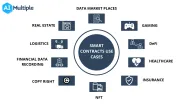
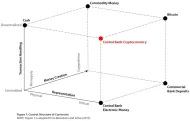
Comments
Your email address will not be published. All fields are required.